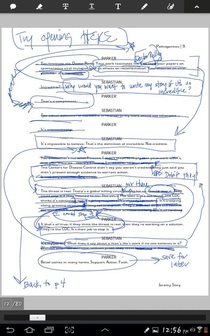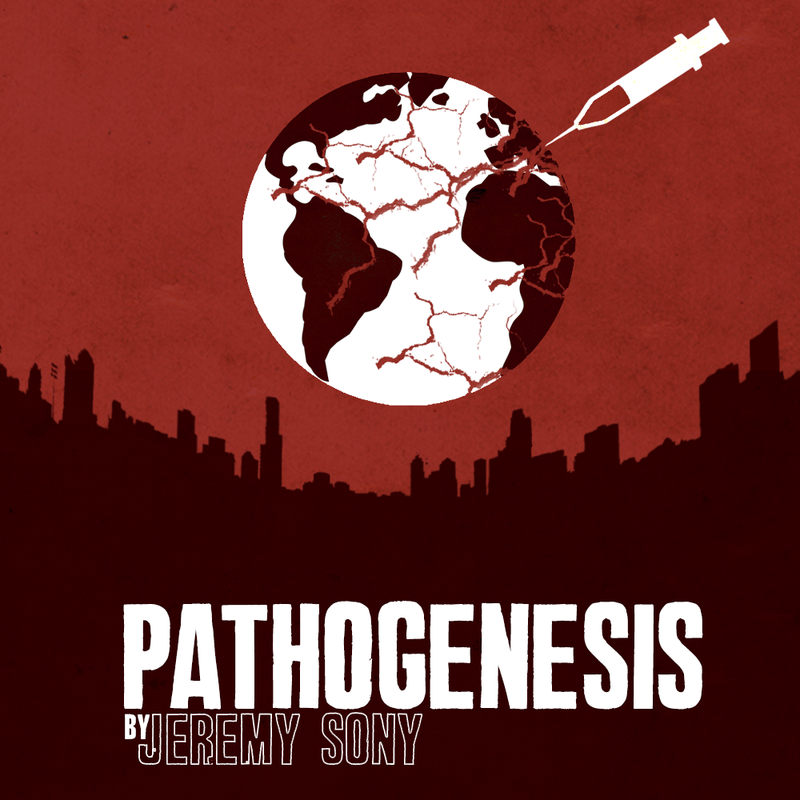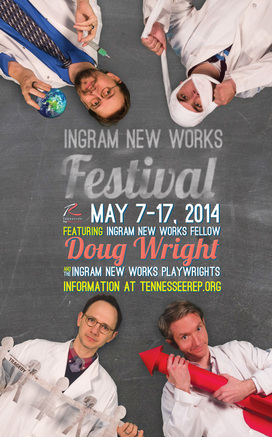|
I was on twitter today and thanks to seeing a retweet from J. Holtham (@jholtham), I ended up reading a solid twitter rant from Motion picture executive / Writer Jeff Willis about the words "sell out" in relation to screenwriters taking jobs writing (or rewriting) scripts for other people. For pay. He tackles the way that people use the words "selling out" against writers who take money to work on projects that aren't theirs, that they might not personally love every minute of, or which aren't wholly aligned with their artistic passions. Or are just bad movies. Does writing a bad movie (for someone else, from their idea) make you a sell out? Does writing a good movie that wasn't your idea or that doesn't satisfy you on an artistic level make you a sell out? Mike Sweeney offers his thoughts in a reply to Willis. Obviously, we all want to write the stories that burn from within our souls and see them realized. Whether their work graces the screen or the stage, most dramatic writers have their own stories to tell, but along the way, we sometimes end up telling other people's stories too. Why? We also have a powerful need to eat. Seriously, though, some people come up with ideas. And some people write. My dad's a commercial painter. Other people design buildings and hire him to paint them. He doesn't always love the paint swatches they choose, but that doesn't matter. He's hired to paint, not to design. He finishes a job, he moves on to the next. But writers are artists, right? On the playwriting front, I have my plays that I write because they are stories I find important and meaningful and burn from within me (see Pathogenesis). To afford to write those scripts, I need money. Like everyone else. So I look for jobs. Some of those jobs I seek involve writing for hire. Writing plays for producers. Fortunately, I've stumbled into playwriting commissions that I fell in love with (see Ichabod). To be fair, writing a play on commission is very different from writing a screenplay for hire. In playwriting, we retain copyright and ownership of our scripts. Writing for the screen has a very different set of rules. Playwriting commissions usually fall into more of a partnership and my experience with screenwriting (see Separation Anxiety) was very similar to that world because I worked with friends and their independent film company. I've not worked in Hollywood yet. Though when that happens, I know I'll be writing scripts for the people cutting the checks. The producers. The studios. However those contracts may read, ultimately, those script won't be mine when I put them down. When I write screenplays in the future, some will be my passion projects that I will write on spec and work hard to sell; but as Willis details in his twitter rant (posted below), it's more likely that my specs will lead, not to million-dollar sales, but, to jobs executing another's vision. Paying jobs, mind you. Writing for hire. Not every job I take will warrant my artistic design (though, that is still a goal and one for which I will always strive). For some, I'll just be a contractor. A skilled craftsman doing my job. Crafting. To someone else's design. Is that selling out? Read the rant below and know that I agree with Jeff Willis. If you're on twitter, you can obviously follow Jeff Willis at @jwillis81.
And you can follow me at @JeremyWrites. It has been such a joy to be part of this program and festival at Tennessee Rep! My new play PATHOGENESIS and these other amazing new plays by Nate Eppler, Dean Poynor, Andrew Kramer, and Doug Wright are happening right now in Nashville, Tennessee, and online at HowlroundTV.
Watch a video of my play's reading and follow-up Q&A now. You can visit Tennessee Rep's website or visit their blog to learn more about this annual development workshop and festival. Curious as to what inspired the new plays in this year's lab? Here's a look inside each of our minds as we answer that question on the Tennessee Rep blog.  One of the key components of writing a great play is rewriting. Writing IS rewriting; it's a phrase tossed around as one of the tenets of storytelling in this modern age. Many a creative writer would probably agree with this. Playwrights have editors too. They're just called something else. And we couldn't do this without them. Who am I talking about? Plays are written for the stage, they are designed to be performed. By people. Usually out loud. Spoken. Orated. By actors. To an audience. Back when stories were handed down over campfires and around tables at the local public house, the stories evolved over time to make them better, more enjoyable, more understandable. Like the storytelling of old, plays are stories designed to be shared with a crowd of people. Yes, we have more storytellers working collectively at the same time thanks to a stage full of actors, but the idea is the same. A play needs to be read aloud, and eventually staged, to engage the "editors" that the playwright has access to. We call them actors, directors, and dramaturgs. They are one huge part of the new play development process. We'll get to the other part in a moment. For anyone reading this who has never been part of new play development, here is one quick example: a writer brings in a script, actors read it aloud, and anyone in the room offers feedback on what they just heard. Writer then takes script and then, after processing feedback, rewrites. Rinse. Repeat. Ideally, this process leads to production. Until then, playwrights need this collaborative environment and feedback to help determine what stays and what goes. While, in the end, the playwright is the ultimate authority on what words end up in the script, I'm a firm believer in readings. The voices in your head only go so far because plays aren't meant to be contained in your head. They need voices from actors. For years, I've bribed many an actor with pizza or Jimmy Johns to read my words. Every one of them were helpful. There is, however, a diminishing return on just readings. Eventually, you need more. Plays need actors, yes. They also need input from directors. From creative staff. They need the help of a theater. Since last September, I have had the joy of working on my new play, PATHOGENESIS, with the talented folks at Tennessee Repertory Theatre in Nashville. As part of the Ingram New Works Lab, I've been able to bring in pages, scenes, and drafts to their writers' room and hear my words interpreted by their amazing actors; I've received feedback from those actors, my fellow writers, and the artistic staff at TNRep. PATHOGENESIS is a father/daughter play set at the end of the world. A three-hander, the third character wasn't working at the start---his impact on the father and daughter story wasn't clicking; he is one example of a character that has significantly changed during this workshop process. Changed for the better. On top of the feedback, workshops like this one have the added benefit of offering invaluable education on the craft. I'm not the only playwright in the room, and when another writer shares work and receives feedback, that feedback can illuminate me as much as the other writer. On top of that, thanks to the set up of TNRep's program, I've had the immense pleasure of getting to know and receiving one-on-one feedback from this season's Ingram New Works Fellow, Doug Wright. If it wasn't enough that he's a master of the craft with a Pulitzer and a Tony, the man is also wicked smart, generous, kind, and inspiring as a person. Needless to say, with all that support over several months, PATHOGENESIS has evolved and developed. But we weren't done after the monthly development meetings. Now, in the past week, we took a gigantic leap forward. While the months of readings and feedback were essential in crafting the play to this point, TNRep has stepped it up in advance of the Ingram New Works Festival. Like the play evolves, so too does the method of rewriting. At this point, I can only speak for myself. If you follow Tennessee Rep on Facebook or check out their blog, you'll meet Nate Eppler, Andrew Kramer, and Dean Poynor. The plays they're writing are hysterical, poignant, surprising, and a large number of other adjectives that add up to "must see". Each of us has taken to working with our festival team separately, so I'm looking forward to seeing how the last few weeks have treated their work. For me, where I used to listen to a reading, hear feedback from the room, and go home and write, the process is now more entwined. Recently, I had the pleasure of meeting my festival cast, the wildly talented Brian Russell, Evelyn O'Neal Brush, and Patrick Waller; and my awesome director, Christopher Bosen. I tout them here, not because I'm trying to talk them up, but because our two in-depth rehearsals last week were instrumental in taking PATHOGENESIS to the next level. We spent the better part of eight hours over two nights going through the script, working the scenes as if we were heading into production. In essence, we are. The Ingram New Works Festival, while not fully staged, is still a series of plays that are rehearsed, directed, and presented to an audience in order to tell a story. We might not have sets or costumes (and right now, we don't need them), but we have the words and we have actors and directors that work with us, in the room, giving us the chance to experiment with dialogue; to hear how something sounds coming from one character verses another; to play with striking lines to let emotional beats play out between actors. The fact that I still have eight more hours coming up with these people next week? Priceless. Not all writers enjoy rewriting in the room. I love it. I love the give and take between writer and actor. I love the insight a good director brings. By the time one of my plays is nearing public display, I've lived with it for ages. I know it. Almost too well. I know the backstories, I know the subtext, I know the characters like I know my friends and family. I like to think I do. The fantastic part about an in-the-room workshop is that the actors and director can approach it like any future company. They don't have all the answers, but they'll have questions. The actors are focused, each on their role---a wonderful gift as they can help fine tune a character arc and the character herself. The director is pouring over the script looking for the story that needs to be told. This is extremely valuable as a good director will alert you to the stories you're telling (some that you never meant to tell). Having this additional playground in the weeks leading up to the festival is another reason I know Tennessee Rep gets new plays and gets that playwrights need support to bring a play to life on stage. For those already doing new play development, I'm preaching to the choir and not sharing any state secrets, but for anyone who doesn't enter the equation until the public reading, I think it's great to understand how much went into the script and development up to that point. Maybe it's a festival where this is the first read anywhere and thus it's like those first days in the room; it's new to everyone. However, if it's like the Ingram New Works Festival, then there are months of internal readings and workshops where the play is protected and nurtured and it evolves to get it to this public reading. To get it to the next stage of development. The final part of this equation, the part that I'm equally excited by and anxious about, is the audience. Having access to actors and development staff is amazing; TNRep follows through by making sure that all that work is seen. Is heard. As I said, plays are meant to be staged and performed for an audience. We take advantage of the talent in the room to edit our scripts along the way, but this is still a development festival and so the talent in the room includes the audience. I am looking forward to seeing how the audience reacts to PATHOGENESIS. We---and by "we" I mean any theatre company working to rehearse and stage a play (new or established)---have the luxury of living with it for months before an audience sees it. We get to debate character motivation and author intent and why we'll light it in cold hues instead of warm ones. An audience? They get one night. 90 minutes, maybe two hours. Maybe there's an intermission to discuss what's going on, maybe the audience is on the ride from curtain to curtain. It's one chance to tell a story. So for me, this last stage is crucial, thrilling, and terrifying. My hope is that when my play is presented to an audience, that I've articulated my story in the best way possible; that I've given my actors and director the blueprint they need to go out there and make theatre. But it doesn't stop here. My goal is to see PATHOGENESIS move on to a production and full staging. So, I'm counting on these first audiences to go with me on this journey and through their feedback, continue to polish and better the play to the point it is ready for that production. That's the best part of the development process---the development audience gives you your first insight into what works and what doesn't. They offer feedback, and not just at the end. You see it in when they lean in because they're literally on the edge of their seats; you see it when they check out and read the program; you hear it in their laughs, or their gasps, or in focused silence. I'll be listening for feedback and opinions after the show, but I'll be paying attention to real-time reactions during the reading just as much. We may write plays to say something about life. Or we write to be artists. I write for those things, but I also write plays for audiences---whether those audiences are the actors, directors, the theater staff, or the honest-to-God audience that paid to see a night of theatre---so I'm partial to listening to what they have to say. This season has been a wild ride and I'm thrilled to have the chance to share this play with Nashville audiences (and, if all goes according to plan with technology, the world, as several of the plays will be livestreamed). I hope you'll join me and everyone at TNRep for this year's festival!
The full schedule of plays
Obviously, I hope you'll see Pathogenesis, but know that Good Monsters, Cut it Out, Together We Are Making a Poem in Honor of Life, and Posterity are not to be missed! Trust me. They are well worth your time. It has been a pleasure and an honor to see them all develop. |
Jeremy's blog
Thoughts. From my brain. Anything to do with how we tell stories and the stories we tell each other. Literally and figuratively. About JeremyWriter. Husband. Father. Effulgent dreamer. A Fightin' Irishman (@NDdotEDU '01). A playwriting Bobcat (MFA in Playwriting, @OhioU '13). I write plays. I'm a geek. I wanted to be an astronaut. I go places in my head.
Categories
All
Archives
January 2022
|





 RSS Feed
RSS Feed
